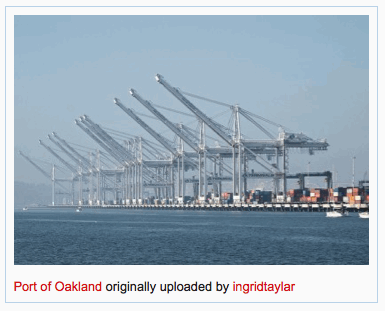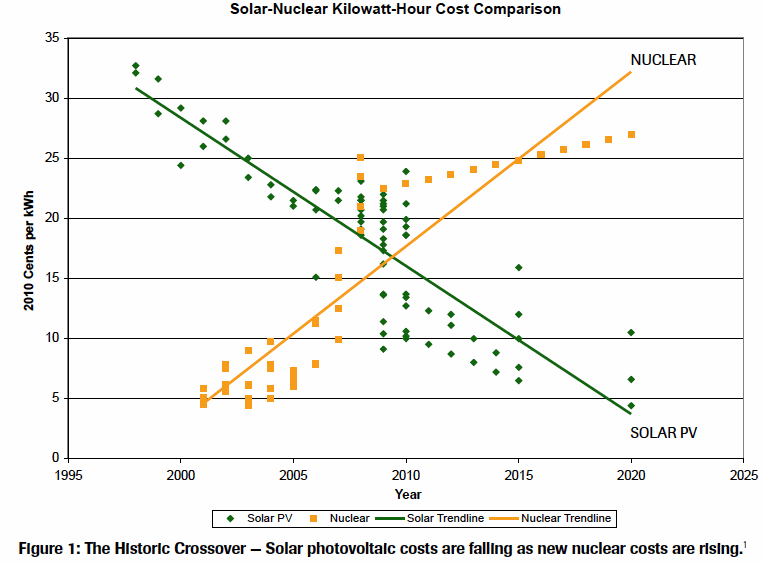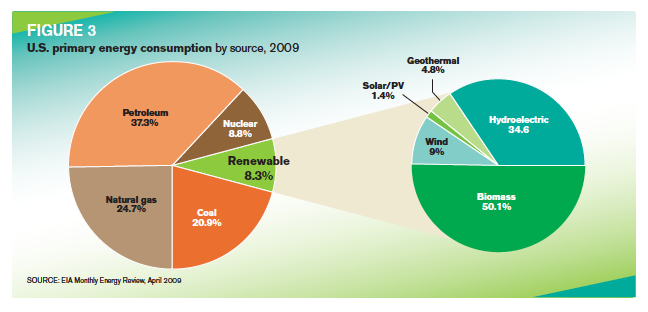MINETA TRANSPORTATION INSTITUTE
In 2006 and 2007 the state of Oregon conducted a groundbreaking mileage fee pilot program. The program responded to a national concern that fuel taxes will stop serving as a reliable revenue source as a large proportion of the vehicle fleet transitions to running on little or no petroleum-based fuel. To prepare Oregon for this future threat to its transportation revenues, the state legislature authorized a pilot program to test mileage fees as a replacement for the state fuel tax.
Archive for the ‘Uncategorized’ Category
The Intersection of Urban Form and Mileage Fees: Findings from the Oregon Road User Fee Pilot Program
Friday, March 11th, 2011AASHTO Conference Report
Thursday, February 3rd, 2011The American Association of State Highway and Transportation Officials (AASHTO) has released the report on the Forum on Funding and Financing Solutions for Surface Transportation in the Coming Decade Conference. “In recognition of the need to discuss a broad range of tools to address the transportation “funding gap,” the AASHTO Center for Excellence in Project […]
View this complete post...Department of Homeland Security’s Infrastructre Reports
Thursday, February 3rd, 2011The Department of Homeland Security provides daily reports on infrastructure, offering information on “critical infrastructure issues”. Each report is “divided by the critical infrastructure sectors and key assets defined in the National Infrastructure Protection Plan“. The DHS archives the reports for the last ten days, and makes each report available in PDF format. February 3rd, […]
View this complete post...Digg this test
Tuesday, January 25th, 2011Guest on The Infra Blog: Petra Todorovich, Director of America 2050 at Regional Plan Association, Discusses New High-Speed Rail Report
Monday, January 17th, 2011
Petra Todorovich is Director of America 2050, a national urban planning initiative to develop an infrastructure and growth strategy for the United States. Since its launch in 2005, America 2050 has convened some of the brightest thinkers in the fields of transportation, land use planning, social equity, and urban development to create a compelling vision for America’s future growth.
View this complete post...Bridging the Gap: Restoring and Rebuilding the Nation’s Bridges
Wednesday, August 11th, 2010
AMERICAN ASSOCIATION OF STATE HIGHWAY AND TRANSPORTATION OFFICIALS
Almost a year ago, we as a nation were stunned and saddened by the tragic bridge collapse in Minneapolis that took 13 lives, injured 144 others, and disrupted the life of a great city.
In the intervening year we have watched with pride the way in which federal, state, and city transportation agencies, contractors, and construction teams have worked night and day to bring to life a new bridge, unsurpassed in technology and design.
Also in the past year we in the transportation industry have looked even more closely at the safety and sustainability of America’s 590,000 bridges for today and into the future.
This report was developed by the men and women of the state departments of transportation to share that inside look with you.
More Americans prefer transportation tolls than taxes, other funding options
Wednesday, August 4th, 2010
HNTB CORPORATION
Despite a growing awareness that America’s aging network of highways, bridges and tunnels is in failing health, huge roadblocks are preventing Congressional action on a new national transportation bill: the lack of adequate funding sources and consensus on a vision that helps plan, prioritize and pay for U.S. infrastructure. A new America THINKS survey from HNTB Corporation suggests the answer may lie in a modern version of a solution that financed this country’s roads and bridges prior to the advent of a national gas tax more than 50 years ago: tolling.
What does the FREIGHT Act really mean for our freights and ports?
Tuesday, August 3rd, 2010
TRANSPORTATION FOR AMERICA
By Stephen Lee Davis
So if a port is congested or wants to expand, there’s little available federal money to spend directly on rail or any other mode. Your choices are highways or highways. When a state or port does spend to improve operations, there is no accountability to make sure they’re actually reducing port/freight congestion, moving freight faster, or reducing air pollution in surrounding communities — a significant issue of environmental justice.
Solar and Nuclear Costs — The Historic Crossover: Solar Energy is Now the Better Buy
Thursday, July 29th, 2010
NC WARN: WASTE AWARENESS & REDUCTION NETWORK
Solar photovoltaic system costs have fallen steadily for decades. They are projected to fall even farther over the next 10 years. Meanwhile, projected costs for construction of new nuclear plants have risen steadily over the last decade, and they continue to rise. In the past year, the lines have crossed in North Carolina. Electricity from new solar installations is now cheaper than electricity from proposed new nuclear plants.
View this complete post...RENEWABLE ENERGY – MEETING THE GOAL: A PROGRESS REPORT
Wednesday, July 7th, 2010
25 x ’25
The American Recovery and Reinvestment Act of 2009 – also called the stimulus package – included $37.5 billion for renewable energy and energy efficiency programs. However, the expiration of a critical production tax credit has depressed the production of biodiesel from soybeans and other farm products, and Congress has not yet adopted comprehensive energy and climate legislation that will establish a long-term national energy plan to guide America’s transition to a cleaner and more secure energy future.
Follow InfrastructureUSA
CATEGORIES
- Accountability (219)
- Aging Infrastructure (758)
- Aviation (130)
- Biking (324)
- Bipartisan (271)
- Bridges (493)
- Broadband (57)
- Buses (160)
- Carbon Tax (22)
- Clean Air (182)
- Climate Change (202)
- Competitiveness (230)
- Congestion (327)
- Dams (77)
- Democrat (123)
- Drinking Water (192)
- Economic Stimulus (276)
- Employment (207)
- Energy (585)
- Environment (615)
- Equity (239)
- Funding (888)
- Global (205)
- Great American Infrastructure (33)
- Green (295)
- Guests on The Infra Blog (300)
- Hazardous Waste (27)
- High Speed Rail (224)
- Highway (785)
- Inland Waterways (204)
- Jobs (251)
- Land Use (99)
- LEED (28)
- Levees (42)
- Local (1,910)
- National (1,527)
- Policy (1,122)
- Pollution (215)
- Private Investment (213)
- Public Opinion (189)
- Public Parks & Recreation (198)
- Public Transportation (1,028)
- Racism (6)
- Rail (506)
- Recession (65)
- Recovery (218)
- Republican (109)
- Roads (1,120)
- Schools (81)
- Seaports (69)
- Smart Grid (98)
- Smart Growth (442)
- Solid Waste (26)
- Sustainability (767)
- Tax (112)
- Technology (397)
- Telecommunications (46)
- Transit (1,333)
- Urban Planning (983)
- Wastewater (183)
- Water Treatment (168)
Video, stills and tales. Share images of the Infra in your community that demands attention. Post your ideas about national Infra issues. Go ahead. Show Us Your Infra! Upload and instantly share your message.
Is the administration moving fast enough on Infra issues? Are Americans prepared to pay more taxes for repairs? Should job creation be the guiding determination? Vote now!
What do the experts think? This is where the nation's public policy organizations, trade associations and think tanks weigh in with analysis on Infra issues. Tell them what you think. Ask questions. Share a different view.
The Infra Blog offers cutting edge perspective on a broad spectrum of Infra topics. Frequent updates and provocative posts highlight hot button topics -- essential ingredients of a national Infra dialogue.
Dear Friends,
It is encouraging to finally see clear signs of federal action to support a comprehensive US infrastructure investment plan.
Now more than ever, our advocacy is needed to keep stakeholders informed and connected, and to hold politicians to their promises to finally fix our nation’s ailing infrastructure.
We have already engaged nearly 280,000 users, and hoping to add many more as interest continues to grow.
We require your support in order to rise to this occasion, to make the most of this opportunity. Please consider making a tax-deductible donation to InfrastructureUSA.org.
Steve Anderson
Managing Director
SteveAnderson@InfrastructureUSA.org
917-940-7125













 RSS Feed
RSS Feed